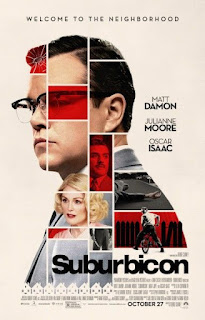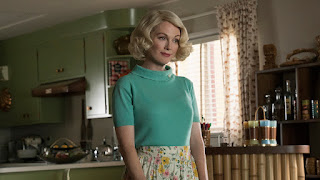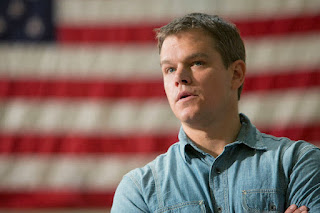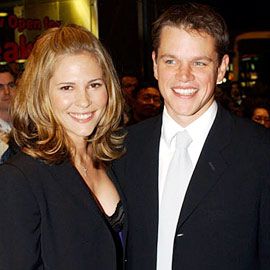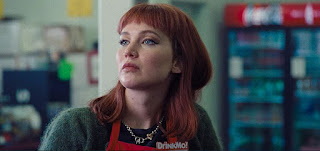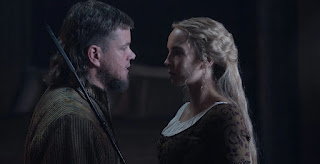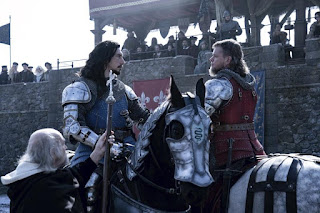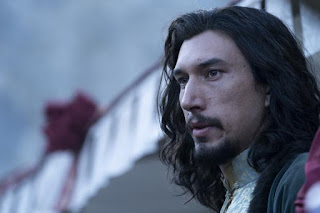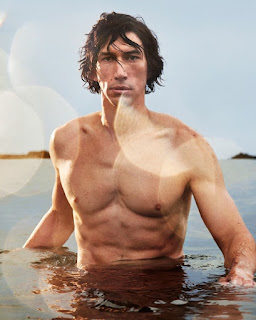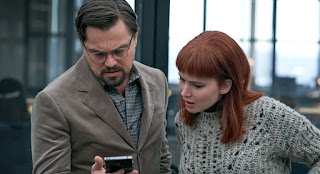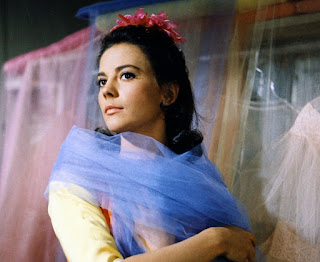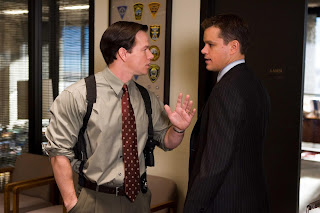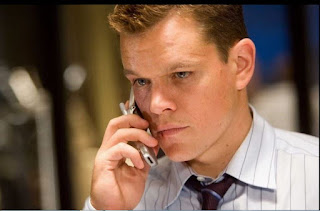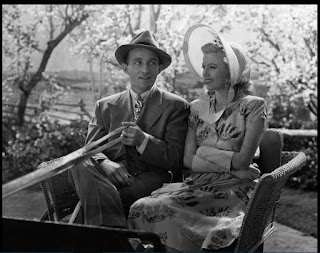
David Marchese’s new profile of Matt Damon and Stillwater, “the enduring career of the star no one really knows” is an interesting thesis – David Marchese’s positing that Matt Damon is a wholesome “everyman”, that the image he’s maintained during the course of his 25-year career, is that he’s just a regular, relatable dude. He’s famous but he could be one of us. But this is where that “everyman” advantage kicks in. Because so many people can see themselves in Matt, even his mistakes become relatable, so there are layers to his “everyman” benefits. His “everyman” image, juxtaposed with his best friend’s decidedly not “everyman” image is a benefit too. And there’s a whole section in this piece that compares and contrasts Matt and Ben and their seemingly different approaches to fame that reinforces the idea that Matt Damon is the “one of us” movie star. Which is why he can, in this profile, talk about how Hollywood has changed, how mid-budget films are disappearing in favour of superhero movies. In The Last Duel, in which Matt may be leaning in again to that “everyman” reputation to play a medieval French dude defending his wife’s honour. This could be a “fridging” story, but casting Matt, the “everyman”, as a historical figure who was a hard worker, a competent soldier, whose fortunes have turned, and who challenges an opportunistic, morally corrupt man who has taken advantage of his wife, well, you can already see where the audiences sympathies might lie. Source: laineygossip.com

Over the course of his long tenure near the top of the Hollywood food chain, Matt Damon has often embodied idealized everymen: the solid, approachable, well-meaning, scrappy characters he has played with seeming simplicity and emotional economy in a long line of very successful movies. There’s the stolid rugby captain Francois Pienaar in “Invictus” (2009); the keeping-it-together dad in the 2011 pandemic procedural “Contagion”; the good ol’ boy auto racing impresario Carroll Shelby, up against them fancy Italians, in “Ford v Ferrari” (2019). Think, too, of his Mark Watney from “The Martian” (2015), an astronaut not about to let being marooned on Mars dampen his geeky enthusiasm for solving lifesaving science problems. Yet despite being a hugely famous, sympathetic and very bankable American movie star, Damon has always felt distant, hasn’t he? Which is odd, because Damon has never floated away into the realm of remote screen deity like his contemporaries Leonardo DiCaprio or Brad Pitt or George Clooney — he’s too solidly earthy for that. Instead there’s a cipher-like aspect to Damon, a deeper impenetrability to who he is and what he does that even now, after a quarter-century of watching him, has become so entrenched that we take both it and him for granted.

"Eventually stardom is going to go away from me. It goes away from everybody and all you have in the end is to be able to look back and like the choices you made." -Matt Damon

Matt Damon is an amiable, if cautious, interviewee, and to a degree that’s almost disorienting, his vibe is deeply normal. Talking to him was like making conversation with a former classmate or colleague whom maybe you didn’t know all that well but of whom you always thought fondly. But Damon doesn’t just play nice guys. Far from it. There’s Jason Bourne, whom he has played in four hit films and who is a miserable, self-loathing killing machine; the sociopathic social climber Tom Ripley in Anthony Minghella’s “The Talented Mr. Ripley”; the crooked Colin Sullivan in “The Departed.” Over the course of his career, Damon has seen the films like the ones that sustained him—that is, the $20-million drama, what he calls his “bread and butter”—mostly disappear. “You need those roles to develop as an actor and build your career, and those are gone,” Damon said: “Courtroom dramas, all that stuff, they can’t get made.” Those sorts of movies have been replaced by more easily exportable, higher-budget but lower-risk ones. “You’re looking for a home run that can play in all these different territories to all these different ages,” Damon said. “You want the most accessible thing you can make, in terms of language and culture. And what is that? A superhero movie.”
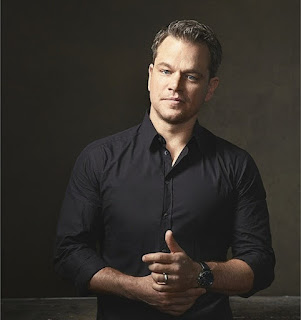
“Whatever those wholesome associations are that people say I have,” Damon said, relentlessly self-deprecating, quite resistant to parsing his own appeal, “having them allowed me a chance to work with clever directors who want to subvert that.” He’s a pleasingly inoffensive, non-threateningly masculine, apple-pie type, but like so many all-American commodities, there’s more lurking in that designation that meets the eye. Damon has long benefited from a public-facing opacity. This goes back to “Good Will Hunting,” which established Damon as someone to root for after he and Affleck came from somewhere just north of nowhere to write and star in the picture together. The duo won an Academy Award for best original screenplay and strolled onstage to accept the award with pure enthusiasm, utterly free of jadedness. Didn’t they seem like such nice boys? For one of them, that stuck. Damon, in the years immediately after, managed to freeze his persona in that moment of, well, good will. He had a couple of high-profile relationships (Minnie Driver, Winona Ryder) and then vanished from the tabloids, which he talks about as a healthy career move. “If people can see x pictures of you drinking coffee or walking your dog,” Damon said, “I think it dilutes the desire to see you in a movie.” Some of this insight has most likely been arrived at through his proximity to Affleck, who has not been able to avoid tabloid attention: We know about his failed relationships (Ana de Armas), his addiction problems, his preference for iced beverages from Dunkin’ Donuts, his propensity to look sad when snapped by a long-lens camera.

Here’s what we know about Matt Damon: He and his older brother, Kyle, were raised in Cambridge, Mass. by their father, Kent, a stockbroker, and mother, Nancy Carlsson-Paige, a professor of early-childhood education. The couple divorced when the boys were small children, but the relationship remained amicable. “They really co-parented,” offered Damon, whose posture stiffened slightly when questions crept toward the personal. Damon said his mother knew that he’d be an actor from the time he was a small child. Damon and his wife met in Miami, where she was working as a bartender and he was filming the Farrelly brothers’ slapstick comedy “Stuck on You” (2003) and have now been married for 16 years. Matt Damon had a two-year relationship with Winona Ryder which ended in 2000. Winona said (in an interview with Black Book magazine), “Matt couldn't be a greater, nicer guy. I'm really lucky that I'm on good terms with him.” After he met Luciana Barroso, Matt was done looking.

Lucy, as he prefers to call her, and her daughter Alexia from a previous relationship had been with Matt throughout the European shoot of 'Ocean’s Twelve'. But the big test came in 2004 when Matt brought Lucy home to meet his family and friends in Boston. When they renewed their marriage vows in St. Lucia (April 13, 2013) with 50 guests for the sunset ceremony, Damon vowed to his wife, “to keep my sense of humor, to defend you in public and correct you in private, to hold the handheld shower when you're rinsing the dye out of your hair even though you say I don't do it right, to always respect your views even when we disagree—like about the fact that there's a right way and a wrong way to hold a handheld shower… to make a fool out of myself in front of you—but not too often… to be the dad our four beautiful children deserve, to be your best friend, and no matter what unpredictable direction life takes us in, to be right next to you loving you with everything I have.” Matt and Lucy married in a civil ceremony on December 9, 2005 at the Manhattan Marriage Bureau in New York City. Matt became officially the stepfather of Alexia. The couple’s first child together, Isabella, was born on June 11, 2006. Their second daughter, Gia Zavala, was born on August 20, 2008, and their third child, daughter Stella, was born on October 20, 2010. Their first two daughters were born in Miami and the third was born in New York.

Call it what you will, boring or shrewd, but Damon sees himself as “in the last of that line of people who want to maintain privacy,” he said. “There’s this new line of people inviting everybody into their daily lives: Hey, I’m at the gym! This is me working out! There’s something tactical about it in the sense that you’re controlling the narrative, but it’s the exact opposite of how I’ve always thought, which is ‘Move on, nothing to see here,’ and just doing the work.” But even at Damon’s Hollywood-mainstay level, the movie-star business is tenuous. A scant few years ago, “Suburbicon” and “Downsizing” fizzled back to back, and the historical fantasy “The Great Wall,” which was a stinkeroo. Damon worried that his career “was in real peril.” He felt more secure when “Ford v Ferrari” scored. If “that hadn’t worked,” he said, “it would have been a big problem for me.”
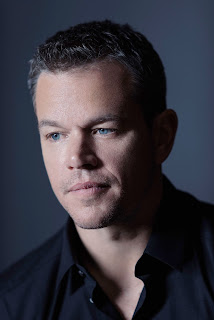
In 2017, at the height of the #MeToo movement’s momentum, Damon said that allegations of inappropriate sexual behavior needed to be seen as existing on a “spectrum.” Later he apologized for it publicly, “I was and am tone-deaf,” he said shaking his head contritely. “Like everybody, I’m a prisoner of my subjective experiences and that leads to having blind spots. Me more than most given the experience that I’ve had as a white male American movie star. It’s a very rarefied air. So, yes, I was and am tone-deaf. I do try my best not to be.” Looking back on this misjudgment, Damon said that the best piece of advice he got at the time came from an old Cambridge friend who told him to focus on listening to the criticisms rather than responding. “It was wise,” said Damon. “I did listen, and once I got out of my defensive crouch,” he paused: “I really started to understand what it was I said that people took exception with.” We don’t really want to begrudge Matt Damon. We just want to like him. And yet, Damon is the movie-star epitome of the nice white American male at a time when the trust in what that kind of figure represents is increasingly suspect. There’s a reason there is no obvious next Matt Damon—and it doesn’t just have to do with the disappearance of the $20-million-to-$70-million movies he came up in. You can look at the roster of those younger than Damon and see plenty of likable white guys, but they’ve all taken different tracks than Damon. Timothy Chalamet comes off more like a species of exotic bird than a man with whom you might plausibly share a beer. Source: nytimes.com

"Building a strong, solid, educated middle class is ultimately the best thing for America. Someone like FDR. There's a misconception that leaders lead. They don't. They follow. Every great movement has come from the bottom up." -Matt Damon

The ensemble for Christopher Nolan’s next film Oppenheimer keeps growing in star power as sources tell Deadline Matt Damon and Robert Downey Jr. have joined Cillian Murphy in the Universal Pictures tentpole. Nolan is writing and directing the film that revolves around J. Robert Oppenheimer, the scientist who ran the Manhattan Project that led to the invention of the atomic bomb. The project has set a July 21, 2023, release date. It’s also roughly two weeks before the anniversary of the dropping of the bomb on Hiroshima. Universal is calling the movie an “epic thriller that thrusts audiences into the pulse-pounding paradox of the enigmatic man who must risk destroying the world in order to save it.” Murphy is portraying the theoretical physicist who helped develop the atomic bomb during World War II. According to sources, Blunt is playing his wife, Katherine “Kitty” Oppenheimer, while Damon will play Lt. Gen. Leslie Groves, the director of the Manhattan Project, the U.S. research initiative that developed the first atomic bomb. Downey will play Lewis Strauss, the infamous chairman of the Atomic Energy Commission who initiated hearings that questioned Oppenheimer’s loyalty to the United States and famously had the scientist’s security clearance revoked. The project is based on American Prometheus: The Triumph and Tragedy of J. Robert Oppenheimer by Kai Bird and the late Martin J. Sherwin. Published in 2005, the book won the Pulitzer Prize. Damon is coming off of starring in Ridley Scott’s period drama The Last Duel, which he co-wrote. Source: hollywoodreporter.com










